Politics
/ArcaMax
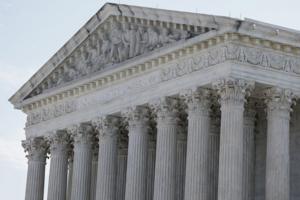
Supreme Court allows civil lawsuits against Palestinian groups
WASHINGTON — The Supreme Court backed a 2019 federal law Friday meant to allow lawsuits against the Palestine Liberation Organization and Palestinian Authority for damages from terror attacks.
Congress passed the law stating the two organizations could be subject to lawsuits in the United States for activities such as processing payments for ...Read more

Making NYC affordable: Where the mayoral primary candidates stand on the housing crisis
NEW YORK — New York City is facing intertwined housing and affordability crises, with record rents and historically low apartment vacancy rates. About half of households struggle to pay for the basics while a quarter live in poverty.
Within the debate over affordability, finding ways to create more affordable housing has become a major ...Read more
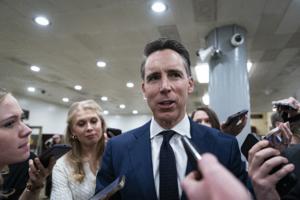
Senate GOP mulls shielding rural hospitals from Medicaid cuts
WASHINGTON — Senate Republicans say they are looking for ways to safeguard rural hospitals from proposed cuts to a key Medicaid funding method, amid concerns from the powerful hospital lobby and others that the budget reconciliation bill could force many facilities to close.
The draft text that the Senate Finance Committee released this week ...Read more
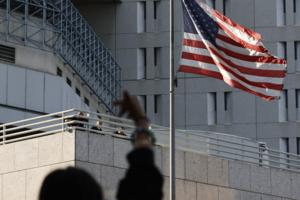
DHS keeps denying access to members of Congress attempting oversight. Experts say it's illegal
WASHINGTON — The day after immigration raids began in Los Angeles, Rep. Norma Torres, D-Calif., and three other members of Congress were denied entry to the immigrant detention facility inside the Roybal Federal Building.
The lawmakers were attempting an unannounced inspection, a common and long-standing practice under congressional oversight...Read more

Preparations for NYC Election Day heat wave blasted as inadequate by Cuomo
NEW YORK — Hundreds of polling sites in the city that do not have air conditioning systems will be equipped with electric fans on Tuesday, when temperatures are projected to soar into the 100s as New Yorkers head out to vote in the local 2025 primary elections.
But the ramped-up heat precautions were criticized as inadequate by mayoral ...Read more
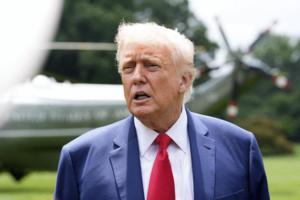
White House: Maryland families would be 4th-largest beneficiary of Trump tax bill
Maryland ties for fourth among 50 states in terms of the financial benefits average families would see if Congress passes President Donald Trump’s tax bill, according to a White House news release.
Citing a state-by-state analysis from the president’s Council of Economic Advisers, the Wednesday release lists the anticipated increases to ...Read more

Trump delays Iran attack decision as Steve Bannon visits White House
President Donald Trump delayed his decision on whether attack Iran for two weeks following a Thursday sighting of Steve Bannon at the White House. The visit comes amid big divisions in his MAGA movement over U.S. involvement in foreign wars.
“There’s a substantial chance of negotiations that may or may not take place with Iran,” Trump ...Read more

TikTok deal gets another extension from Trump
President Trump on Thursday signed an executive order giving TikTok a 90-day extension to work out a deal with the U.S. government that addresses security concerns over the app's ties to China.
Significant pressure has been placed on TikTok, known for its popular social video app, after a law was signed in 2024 that required TikTok's Chinese ...Read more
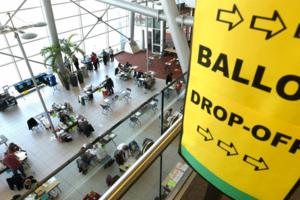
NRA leader agreed to pay $500,000 to settle lawsuit tied to 2020 election, records show
DETROIT — Bill Bachenberg, a supporter of President Donald Trump and a leader within the National Rifle Association, agreed to pay $500,000 to settle a Michigan lawsuit that alleged he refused to compensate a cybersecurity expert who failed to uncover fraud in the 2020 election, according to a court filing.
A dismissal motion submitted in ...Read more
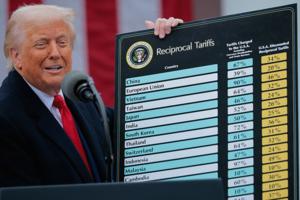
Trump tells Supreme Court no need to rush to consider tariffs
President Donald Trump’s administration urged the U.S. Supreme Court to turn away a request for fast-track review of his sweeping tariffs, saying the justices should give lower courts more time to weigh in.
The filing comes a day after two family-owned businesses asked the court to hear their challenge on an unusually quick schedule, without ...Read more
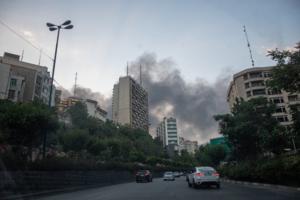
US officials prepare for possible strike on Iran in coming days
Senior U.S. officials are preparing for the possibility of a strike on Iran in the coming days, according to people familiar with the matter, a sign that Washington is assembling the infrastructure to directly enter a conflict with Tehran.
The situation is still evolving and could change, said the people, who requested anonymity to discuss ...Read more

In Minnesota assassination, abortion-rights supporters hear echoes of past violence
MINNEAPOLIS — Abortion providers spent the weekend in fear they could be targeted by the man charged in the assassination of Minnesota House DFL leader Melissa Hortman and shooting of Sen. John Hoffman.
The more than 40 hours police spent searching were “terrifying” as reports surfaced that the alleged killer had a list of potential ...Read more
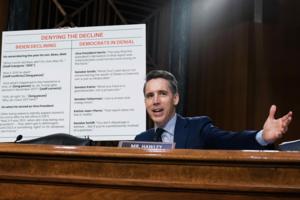
Senate Republicans echo Trump allegations on Biden autopen use
WASHINGTON — Republicans on the Senate Judiciary Committee used a hearing Wednesday to air questions about the use of the autopen in the Biden administration, a topic the Trump administration has pursued this month.
Conservative lawmakers at the hearing, titled “Unfit to Serve: How the Biden Cover-Up Endangered America and Undermined the ...Read more
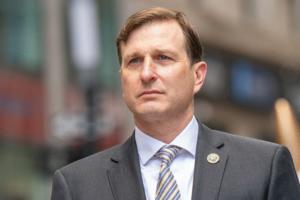
Congressmen demanding to see migrants being held in lower Manhattan turned away by ICE
NEW YORK — Two U.S. House representatives concerned about the conditions detained migrants are facing inside a lower Manhattan courthouse were denied access by U.S. Immigration and Customs Enforcement officials, a day after agents arrested city comptroller Brad Lander inside the same building.
“The question is, why can’t we go in? What ...Read more

Trump again pushes TikTok sale deadline with 90-day reprieve
President Donald Trump plans to extend for a third time the deadline for Chinese company ByteDance Ltd. to divest the American operations of TikTok, allowing the social media app to keep running in the U.S. while negotiations proceed.
“We’re going to extend it,” Trump told reporters at the White House on Wednesday. “We’re going to ...Read more
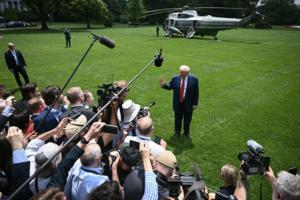
Trump endorses Paramount merger with David Ellison's Skydance
President Trump has endorsed David Ellison’s takeover of Paramount Global — an $8-billion merger that has been complicated by his $20-billion lawsuit over CBS’ “60 Minutes.”
On Wednesday, Trump was asked about the hold-up in the federal review of Skydance’s takeover of the storied entertainment company. The question came as ...Read more
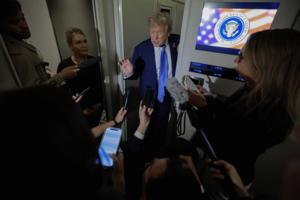
Are Americans confident in Trump to handle international crisis? What poll found
As tensions boil over in the Middle East, a new poll finds most Americans doubt President Donald Trump’s ability to steer the nation through a global crisis.
The YouGov/Economist survey, conducted June 13 to 16, asked respondents “are you confident in Donald Trump’s ability to deal wisely with an international crisis, or are you uneasy ...Read more
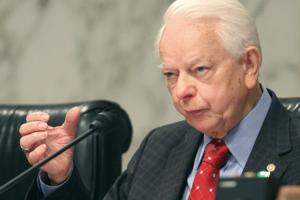
Why reconciliation is a 'privilege' for lawmakers, not a right
WASHINGTON — House GOP leaders had a brief scare last week when they had to go back and fix several pages in their mammoth budget reconciliation bill that passed before Memorial Day.
That “privilege scrub” process, necessary to preserve a reconciliation bill’s filibuster-proof status in the Senate — is often confused with the “Byrd ...Read more
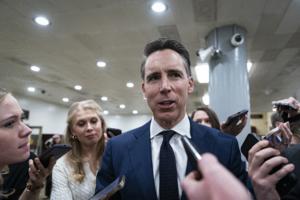
Medicaid work requirements pose huge challenges for states
WASHINGTON — Congress is on the verge of passing legislation that would require millions of Medicaid beneficiaries across the nation to prove they are working to receive benefits, posing a massive challenge for states that would be required to act quickly with limited resources.
The requirements, a prominent feature of Republicans’ budget ...Read more

Anti-Trump 'No Kings' protests were a success, yet Democrats fail to meet the moment
The “No Kings Day” protests turned into a celebration of freedom and democracy, while President Donald Trump’s military-style dictator day parade was a costly flop with empty seats and a president who looked bored by the lack of goose-stepping and adulation.
Meanwhile, more than five million marched in events held in cities and towns ...Read more
Popular Stories
- US officials prepare for possible strike on Iran in coming days
- DHS keeps denying access to members of Congress attempting oversight. Experts say it's illegal
- White House: Maryland families would be 4th-largest beneficiary of Trump tax bill
- NRA leader agreed to pay $500,000 to settle lawsuit tied to 2020 election, records show
- Stoking the fire -- Trump has edged on political extremism























































